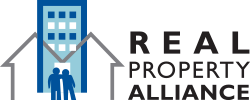What you should know about Home Rule
Property owners throughout Illinois are sensitive to how much they pay in property taxes and fees. The state has some of the highest property taxes in the nation, and in many smaller Illinois communities, the problem is particularly acute as local budgets are perilously imbalanced.
That’s why many smaller communities try to convince residents that becoming a Home Rule unit would benefit them. Home Rule cuts voters out of having a direct say on whether they want to pay more to live in their community, and almost always the result is HIGHER taxes.
What you should know about Home Rule
Property owners throughout Illinois are sensitive to how much they pay in property taxes and fees. The state has some of the highest property taxes in the nation, and in many smaller Illinois communities, the problem is particularly acute as local budgets are perilously imbalanced.
That’s why many smaller communities try to convince residents that becoming a Home Rule unit would benefit them. Home Rule cuts voters out of having a direct say on whether they want to pay more to live in their community, and almost always the result is HIGHER taxes.
Three things you should know about Home Rule
How does a community get Home Rule?
Under state law, a non-Home Rule community of 25,000 residents or less can only become a Home Rule unit if voters approve the measure in a referendum. Cities with more than 25,000 residents are automatically Home Rule communities.
Since 2017, there have been at least 19 efforts to obtain Home Rule in Illinois communities. Eighteen failed in large part because voters didn’t trust their elected officials to keep taxes and fees low.
What can happen in Home Rule communities?
In Home Rule communities there is the potential for a never-ending cycle of property tax increases once elected officials wrest direct say over tax increases from voters. But there’s more danger in the fees that property owners and renters can be faced with. These can include

Pre-sale
inspections:
Municipalities may force property owners to fix things that don’t affect life and safety, and which the buyer might not even want. In some cases, unreasonable demands can result in deals falling through.
Multi-family
rental ordinances:
Fees can be charged to rental property owners on a per-unit basis which can add up quickly and cause local rents to soar.
Real estate
transfer taxes:
These taxes add more costs to buyers and sellers. They are just one more way communities make it more expensive to live and work in a community.
What can happen in Home Rule communities?
In Home Rule communities there is the potential for a never-ending cycle of property tax increases once elected officials wrest direct say over tax increases from voters. But there’s more danger in the fees that property owners and renters can be faced with. These can include

Pre-sale inspections:
Municipalities may force property owners to fix things that don’t affect life and safety, and which the buyer might not even want. In some cases, unreasonable demands can result in deals falling through.
Multi-family rental ordinances:
Fees can be charged to rental property owners on a per-unit basis which can add up quickly and cause local rents to soar.
Real estate transfer taxes:
These taxes add more costs to buyers and sellers. They are just one more way communities make it more expensive to live and work in a community.
